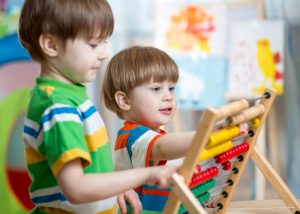 What’s the Purpose of Preschool? Explained
What’s the Purpose of Preschool? Explained
Preschool is an important stepping stone for young children on their way to formal education. It is a stage where kids learn new skills that prepare them for kindergarten and beyond. It’s also a time when children acquire social, emotional, cognitive, and physical skills. In this blog post, we’ll explore the purpose of preschool and why it is important for children’s development.
1. Socialization
One of the main goals of preschool is to encourage children to interact with others and develop social skills. Children learn to communicate with teachers and peers, share toys, play cooperatively, and take turns. Preschool provides a safe and structured environment where children can experiment with different forms of socialization and develop social abilities that are crucial to life.
2. Emotional Development
Preschool is also a place where kids learn to express and manage their emotions. They develop self-esteem, confidence, and independence as they interact with other children and teachers. Kids learn to recognize their own feelings and how to express them appropriately. Within the safe and nurturing environment of preschool, children learn to deal with emotions such as anger, frustration, and sadness.
3. Physical Development
Preschool also plays a crucial role in enhancing children’s physical skills. Schools have activities that help kids develop their gross motor skills, fine motor skills, and hand-eye coordination through exercises like running, jumping, throwing, catching, and drawing. These activities also help kids develop the strength, flexibility, and endurance necessary for healthy growth and development.
4. Cognitive Development
Preschool serves as an introduction to formal education and is necessary for children to develop cognitive skills essential for academic success. It helps children to develop language, literacy, and numeracy skills. Young children are introduced to basic concepts such as colors, shapes, numbers, and the alphabet. They learn through rhyming songs, alphabet games, and story time. These milestones are vital for children from diverse backgrounds, and it creates a foundation for successful learning in the future.
5. Learning Through Play
Preschool isn’t all about sitting behind a desk and listening to lessons. It’s a time where learning through play is highly encouraged and promoted. Children are encouraged to learn through imaginative and creative play, which is a natural language to them. Many preschools adopt the play-based learning approach, where the curriculum is centered on play-based activities. Kids learn narrative and language skills through storytelling, and also learn about shapes, colors, and letters through puzzles and games.
6. Establishing a Strong Foundation
Overall, preschool plays a vital role in creating a strong foundation for children’s educational journey. Preschool enhances children’s social, emotional, cognitive, and physical development. Children learn to develop confidence and self-esteem, which will be beneficial for academic success in the future. Fundamental skills like learning how to read, write, and understand basic math concepts are essential to educational success. Preschool prepares children for academic success, which is why it’s important to invest in quality early childhood education.
Investing in Quality Early Childhood Education
It’s easy to see that preschool education plays a crucial role in preparing children for success in future schooling and life. However, not all preschool education is created equal. Quality early childhood programs should possess a knowledgeable and well-trained staff, provide consistent and stable interactions and make the most of positive family support. Lower quality preschool programs may not provide all of the benefits discussed earlier, and it’s important to recognize these limitations.
It’s essential to emphasize this fact – children who attend quality preschool programs have academic and interpersonal benefits when they graduate from high school compared to other children who never had access to quality preschool programs.
Final Thoughts
In summary, the purpose of preschool is to help young children develop social, emotional, cognitive, and physical skills that are important for future academic and life success. It encourages children to interact with others and develop social abilities and helps children recognize and express their emotions appropriately. Furthermore, it helps children develop their physical skills, language, literacy, and numeracy skills. A perfect preschool will allow children to express themselves through play-based activities that are rich and diverse, grounding them in knowledge that will help them thrive in their future years of education and beyond. Quality preschool education is significant. It is essential to note that parents and supporters should invest in quality early childhood education to set the stage for learning success.

